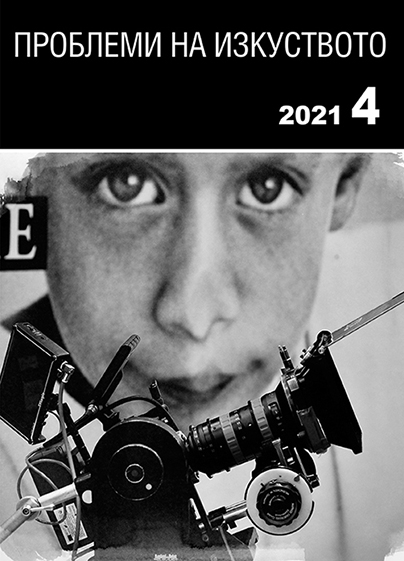Трансформации на филмовото в епохата на аудиовизуалния „потоп“
Transformations of the filmic in the age of an audiovisual flood
Author(s): Aleksandar DonevSubject(s): Fine Arts / Performing Arts, Film / Cinema / Cinematography
Published by: Институт за изследване на изкуствата, Българска академия на науките
Keywords: influencership; video blogging; internet consumption; Walter Benjamin; transformation factors
Summary/Abstract: The study’s starting point is the increasing use of mobile communications devices for watching and distributing video content. One of the most noticeable consequences of this are the contemporary practices of creating amateur or non-institutionalised audiovisual content receiving various forms of commercialisation on the Internet. The two most common forms of this type of creativity are influencership and video blogging. They are strongly impacted by popular television formats and adapted to the technological and organisational capabilities of independent creative entrepreneurs. Very often they manage to displace their primes (reality formats, lifestyle shows, etc.) based on their more efficient financing models and more direct audience contact. In addition, the data from the single comprehensive survey of young people’s (10–24 years) online consumption, commissioned by the Bulgarian office of UNICEF and conducted in the mid-2020, is analysed. The results outline the preferences and mechanisms of choice of this audience in a broader cultural and media context, among which the short form dominates. It is in these preferences that the genres and subjects dominating independently distributed digital content are reflected. The profile and behaviour of consumers in this age group do not unequivocally confirm the assumed theses of total trivialisation of tastes, abundance of aggression and exclusion of the young generation from reality. The third part of the study examines contemporary digital transformations of the notion of ‘filmic’ in the context of Walter Benjamin’s ideas from his essay The Storyteller (1936), where the evolution of narrative practices over the centuries is dealt with. The interaction of technological, social and cultural factors for the ongoing transformation processes is justified. Both the “damage” and the new meanings that the Internet and digital communication give to some “archaic” film practices of creation and consumption are pointed out. It concludes that the forms of perception of the artistic, the functioning of our perception of the aesthetic and the external world are things that are subject to transformation. It is therefore necessary for art and artists not to stigmatise these changes, but to adapt to them and use them for the purpose of their creative endeavours.
Journal: Проблеми на изкуството
- Issue Year: 2021
- Issue No: 4
- Page Range: 10-18
- Page Count: 9
- Language: Bulgarian
- Content File-PDF

